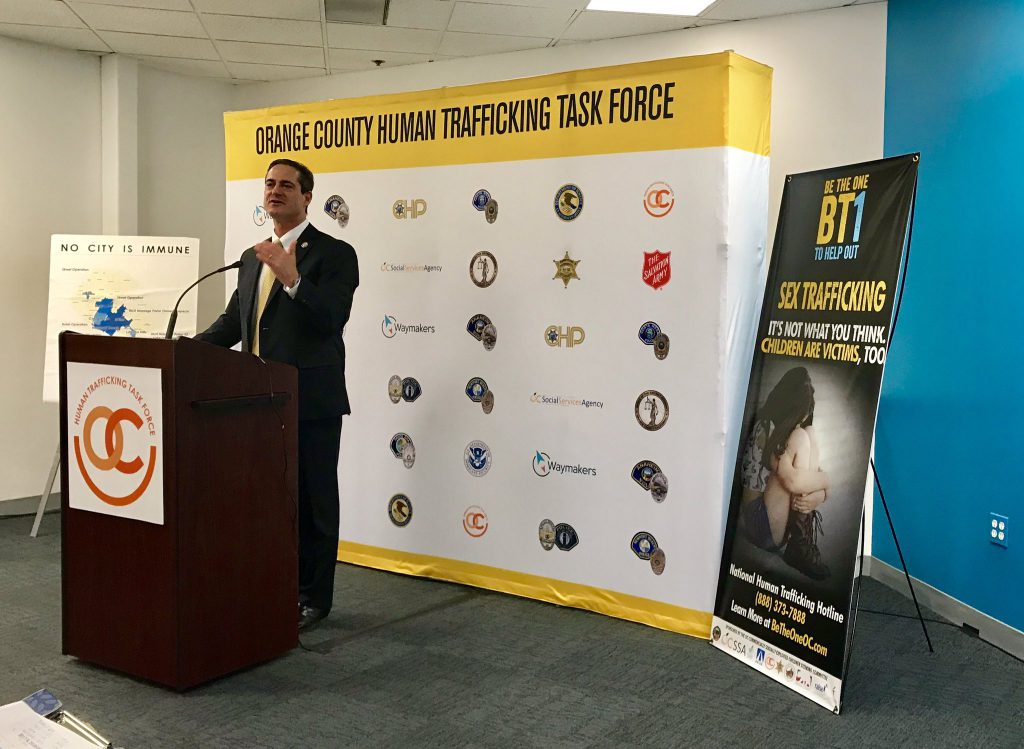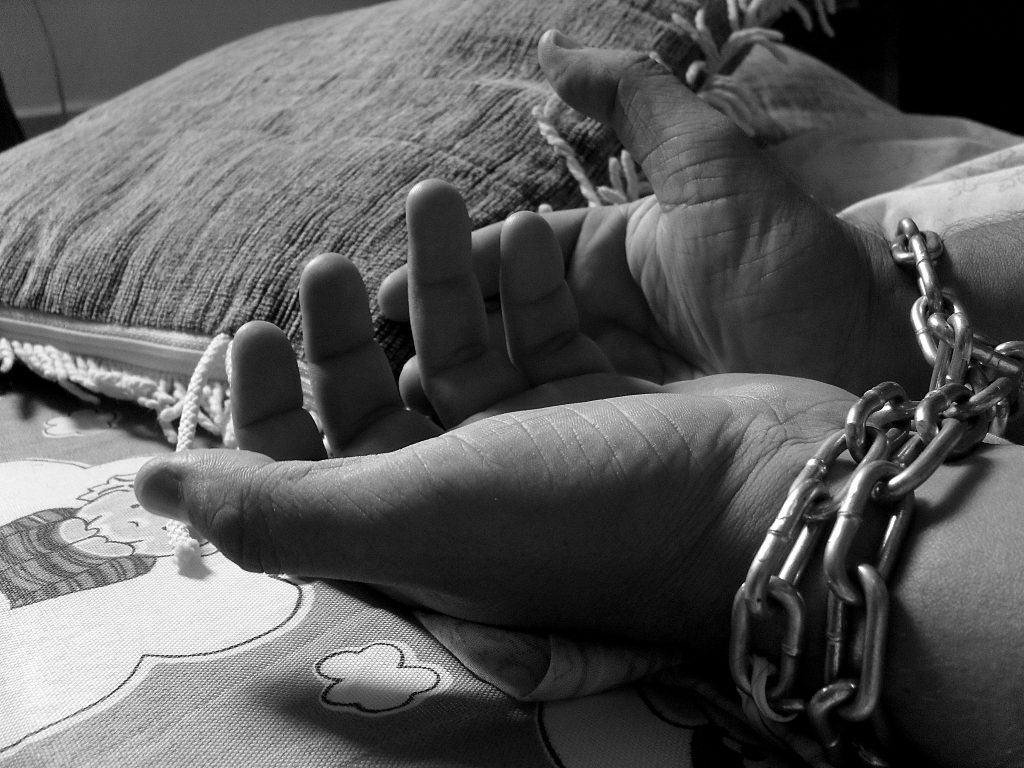
— Photo courtesy OCDA
Orange County is a prime destination for the “often invisible crime” of human trafficking, a predatory offense akin to “modern-day slavery,” according to authorities.
The OC is a targeted location for this type of crime due to its “wealth and tourism,” said Orange County District Attorney Todd Spitzer at a Feb. 21 joint press conference.
Spitzer explained how law enforcement has “fundamentally changed” its response to perpetrators of prostitution, from prosecuting them as criminals to seeing them as victims and treating them accordingly.
“The people we’re prosecuting (now) are the ones that are chaining these young women and men to their rooms, to the bedposts,” Spitzer said. “We have come to the table and changed how we look at this criminal activity.”
They now understand that sex trafficking victims often feel “unloved” in their lives and disassociated from society, and are thusly “extremely vulnerable” to this modern-day slavery by very manipulative pimps, Spitzer noted. They are looking for the same things that everyone wants in their lives — security, emotional stability, and love — but they’re looking in all the wrong places, he said.
The event included an overview of the “2019 Human Trafficking Victim Report,” as prepared by the Orange County Human Trafficking Task Force, a multi-agency team that includes the Newport Beach Police Department.
Since 2013, the task force has produced its victim report in an “evolutionary approach to aiding victims” of contemporary slavery in Orange County. The “victim-centered” approach has been a model for other programs, officials noted.
The recent report detailed that in 2017 and 2018 combined, a reported 415 human trafficking victims that received support services. In all, there were 359 sex trafficking victims and 48 labor trafficking victims. Of those, 83 percent were U.S. citizens; 93 percent were female; and 27 percent were minors.
The 2019 report shared that 71 percent of commercially sexually exploited children were involved in the juvenile delinquency or child dependency system when they were identified as victims. Twenty-five percent include minors who have not been involved in the system.
Officials also reported broader referral sources, including community and family members, local organizations, and the national trafficking hotline. This demonstrates the task force’s effectiveness in collaborating with key stakeholders in the community, noted nonprofit Waymakers Director of Victim Assistance Programs Lita Mercado.

— Photo credit: Pixabay
“Human trafficking is modern-day slavery,” Mercado said.
It described as when someone uses force, fraud, or coercion to obtain some type of labor or commercial sex act, Mercado explained.
On Sept. 25, 2016, Newport assigned a full-time sworn officer to the task force “in order to support the OCHTTF mission,” NBPD Lt. Steve Rasmussen said in an interview this week.
“Our partnership in that group has helped to combat human trafficking in our community,” Rasmussen said. “A practical example includes their proactive training of both NBPD patrol officers and our community stakeholders to increase their awareness and detection of human trafficking in our community.”
Rasmussen provided a few recent examples of their collaboration with the task force, including the cases of Ronald Petersen Spurlock, Grant Champion Ewing, and David Winslow Knaak.
“The OCHTTF is a force multiplier for our detectives when we investigate human trafficking matters and need their assistance as subject matter experts,” he noted.
Newport Beach joined police departments from Anaheim, Irvine, and Santa Ana, as well as the California Highway Patrol, Department of Homeland Security, the county’s probation department, OC Social Services Agency, Children and Family Services Division, Salvation Army, U. S. Attorney’s Office, and the community services organization, Waymakers (plus 60 other organizations) in the group effort designed to help increase awareness, close gaps in anti-trafficking efforts, and share in an exchange of services to assist the complex needs of the victim population.
The task force was developed in 2004 in a “quest to learn more about the emerging crime of human trafficking,” Waymakers Executive Director Ronnetta Johnson explained. Human trafficking is a multi-faceted issue and the challenges to fight the crime and serve the victims are complex, she added.
The fight against human trafficking can’t be fought by not entity alone, Johnson said.
In their battle against exploitation, the OCHTTF takes a three-pronged approach, intertwining awareness and education, law enforcement, and a continuing publicity campaign.
Spitzer closed the press conference by challenging the pimps and criminals exploiting theses victims to come to Orange County.
“Because we’re going to stalk you like you stalk your victims,” Spitzer stated. “I’m confident that our law enforcement team will do what we’ve been successfully doing, which is send you to prison for many, many years… We’re not going to tolerate this in our county.”
For more information about human trafficking in Orange County, visit ochumantrafficking.com. The report can be downloaded under the “Download Resources” tab.
For more information about Waymakers, visit WaymakersOC.org.




